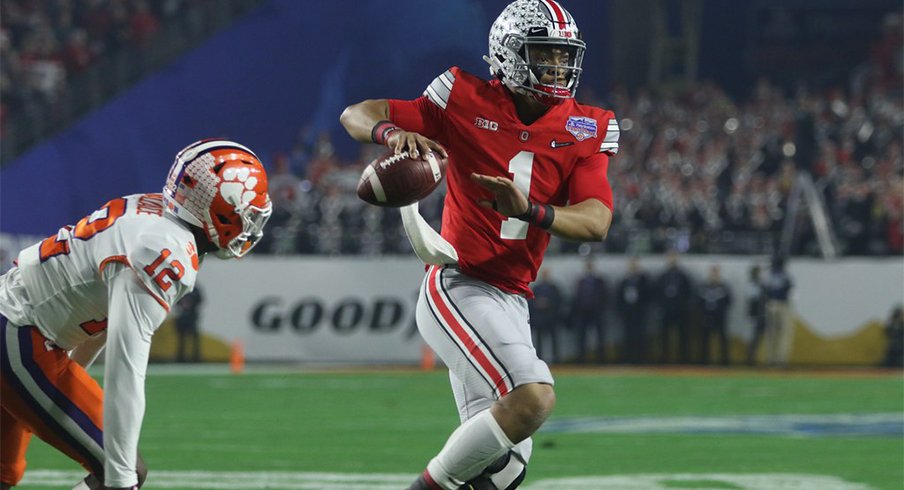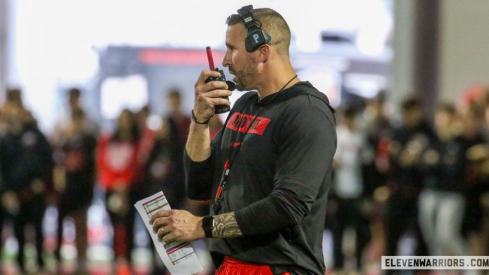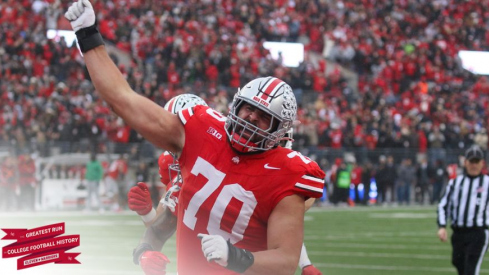Trevor Lawrence orchestrated a historic first season at Clemson in 2018, throwing for 3,280 yards and 30 touchdowns against just four interceptions despite coming off the bench in the Tigers' first four games of the season.
His Clemson team was 13-0 when it entered its playoff matchup against Notre Dame, where he completed an exceptional 69.2 percent of his passes for 327 yards and three touchdowns. Nine days later against top-seeded and undefeated Alabama, he threw for another 347 yards and three scores in a 44-16 rout to help the Tigers claim their second College Football Playoff National Championship in three years.
It was one of the most impressive, if not the most impressive, seasons for a freshman quarterback in college football history. The sky was the limit for Lawrence and Clemson going into 2019, and evidence of that came when the Tigers checked in as an overwhelming No. 1 in both the preseason AP and Coaches Polls.
But Lawrence struggled out of the gate last season, at least through the lens of his lofty standards. After throwing just four interceptions all year as a freshman, he doubled that total in Clemson's first seven games in 2019. His completion percentage dipped from 69.2 as a freshman to 63.6 during that span, and he averaged just 219 passing yards per game as well.
The perception around the Tigers started to slip. Clemson fell from its preseason No. 1 spot down to No. 4, and its campaign to that point featured an uninspired 24-10 win over a mediocre Texas A&M team and a near-disastrous upset to North Carolina.
Clemson's playoff hopes were still intact, but if Lawrence's play continued at that unexpectedly lower level, the Tigers' path back to the final four was rocky at best.
Lawrence flipped the switch, though. In Clemson's final six games leading up to the playoff, he threw 20 touchdowns against no interceptions and completed a remarkable 74.8 percent of his passes. During that stretch, the Tigers' margin of victory was a boisterous 45.
Clemson recaptured its playoff hopes when Lawrence shrugged off a sophomore slump.
Ohio State finds itself in a similar situation going into 2020.
Justin Fields is coming off a historic season himself as a first-year starter for the Buckeyes. The sophomore transfer from Georgia completed 67.2 percent of his passes for 3,273 yards and 41 touchdowns against just three interceptions in 2019. He also ran for 484 yards and 10 touchdowns while leading Ohio State to a 13-0 start before falling to Clemson in its playoff matchup.
The expectations for both Fields and Ohio State are similar to that of Clemson last year. Fields is a favorite to win the Heisman Trophy and the Buckeyes are among the betting favorites to win the playoff.
But those expectations hinge on Fields' ability to avoid a second-year slump. With the losses of superstars like J.K. Dobbins, Chase Young, Jeff Okudah and nine other starters, the Buckeyes likely couldn't afford the kind of seven-game sleepwalk Lawrence started his 2019 campaign with. The Buckeyes' first seven games include a three-week stretch when it'll host Iowa before hitting the road for two tough matchups against Michigan State and Penn State. There's also that tricky trip to Oregon for what will hopefully be a top-10 showdown that can take place despite the coronavirus pandemic.
Ohio State needs a sharper version of Fields to navigate this season, and the loss of spring camp and access to the Buckeyes' facilities makes that all the more difficult. But Ohio State's lead signal-caller is doing all he can to make a leap this year, as he's reportedly worked with quarterback guru Quincy Avery this offseason.
Anything Fields can do to avoid a second-year slump will greatly benefit Ohio State's playoff run in 2020. That's why this year's fall camp will be one of the most important in program history. Fields will have a lot of new and extremely talented firepower at his disposal with the additions of 5-star wideouts Julian Fleming, Jaxon Smith-Njigba and high 4-star pass-catchers Gee Scott Jr. and Mookie Cooper.
And then, of course, there's Oklahoma transfer Trey Sermon, the running back who ran for 2,076 yards and 22 touchdowns with the Sooners who is expected to help Ohio State recover from the loss of Dobbins.
Fields needs to build new chemistry with his offensive weapons, and he needs to do that in a hurry to keep Ohio State in playoff contention in 2020.


